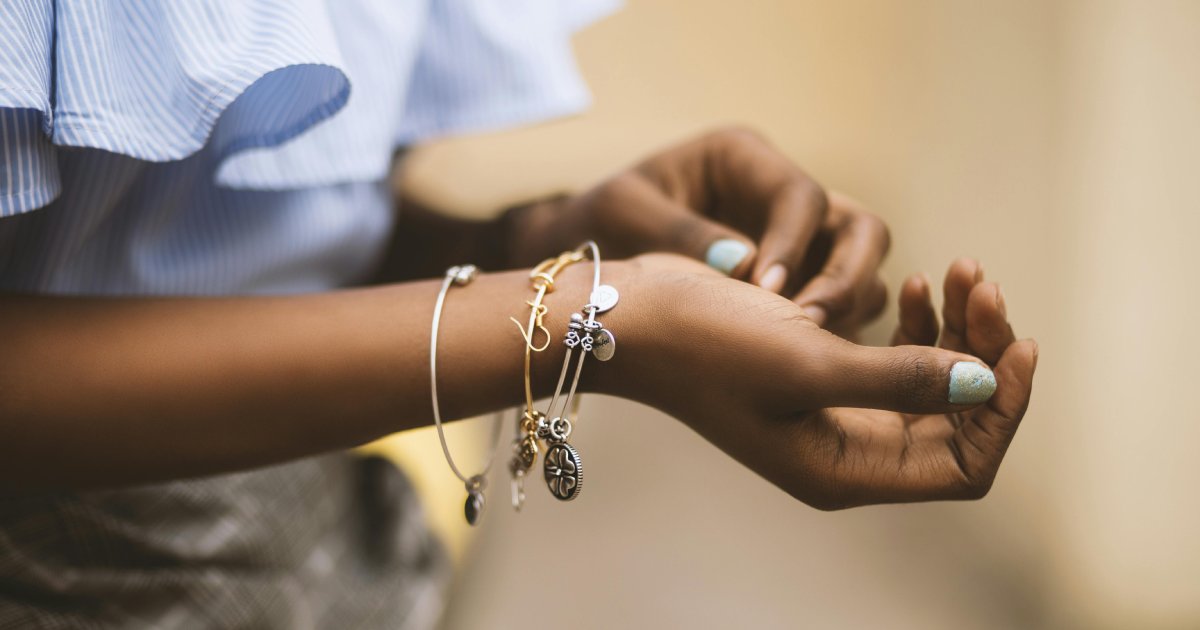Brands Bring a New Sparkle to Costume Jewelry

By Mark Seavy
Amid tighter spending, consumers are taking a shine to costume jewelry.
The lure is largely the lower price point, given that costume jewelry is made from base metal, glass, and plastics. But the market has also proven to be attractive to licensors seeking to draw revenue from their brands.
It’s a category in which sales are forecast to increase 6.8% annually through 2033 to hit $86.8 billion, according to Allied Market Research. Amid that growth, licensing is coming into play as suppliers seek to separate themselves from the competition.
Spin Master Corp. licensed its Twisty Petz brand, which hit a sales peak in 2018-2019, to Super Impulse. The mini collectibles supplier this week launched a 45-piece line of rings, bracelets, and necklaces ($8.29 – $18.99) on Amazon. The range seeks in part to trade on the popularity of friendship bracelets, which reached new heights thanks to Taylor Swift’s record-breaking Eras Tour that ran from March 2023 to December 2024.
Moving forward, the costume jewelry line will expand to specialty chains. Super Impulse is foregoing mass retailers, including Target, which was the top seller of Twisty Petz during its earlier run. Another distribution channel could have been the retail chain Claire’s, which filed for bankruptcy earlier this year.
“We have a pretty broad demographic to chase, and the friendship bracelets have become a commodity,” said Alan Dorfman, CEO at Super Impulse. “Hopefully, we can benefit from that. Our goal is to re-establish the brand as a collectible and as a jewelry item, which we are in the process of doing now. We are more focused on the jewelry, and collectibles is a plus.”
In relaunching Twisty Petz, Super Impulse is capitalizing on the growing demand for reasonably priced jewelry from consumers that are cutting down on discretionary spending.
Jewelry retailer BaubleBar, for example, sells a range of products—including tennis bracelets, 18-carat gold plated earrings, and ring sets—with Disney IP like Mickey Mouse, Goofy, and Daisey Duck under an agreement it first signed in 2020.
And Sanrio’s Hello Kitty has a variety of jewelry deals, including working with jewelry designer Chan Luu and launching a custom necklace program with Brandclub that features consumers’ names. Fashion accessories supplier Pura Vida also had a licensing deal with Hello Kitty for stretch and charm bracelets.
“If a brand takes off and if you have something that a consumer is emotionally tied to, you have an advantage—especially in costume jewelry,” a licensing executive said. “I wouldn’t be surprised if Labubu jewelry is introduced.”
Yet as costume jewelry enjoys an upswing, tariffs are weighing on the business given that most of the products are imported from China. Super Impulse initially planned to ship Twisty Petz in April but postponed the launch to August in the face of the 145% initial levies on Chinese imports by the U.S. government. Super Impulse halted shipments for six weeks as tariff issues were being sorted out. A final decision on the levies for Chinese imports was recently delayed 90 days.
In response to these ongoing shifts, the jewelry business is also turning toward promotional pricing, said Alexander Lacik, CEO at the 2,400-store Pandora jewelry chain, which posted a 6% increase in sales in Q4.
“We have seen some more intense promotional behavior from some of our competitors, a reflection of the challenging environment,” Lacik said. “That’s not a game we particularly play in, and I do not expect, at least on the onset, the environment to be any easier.”




